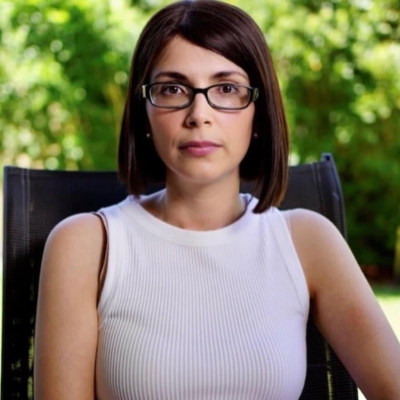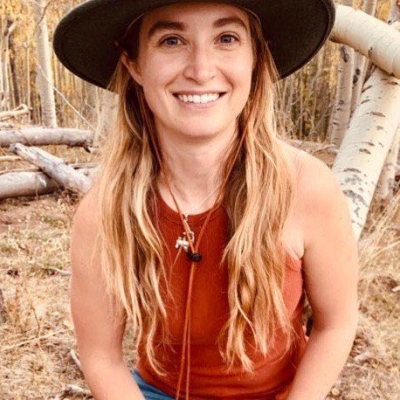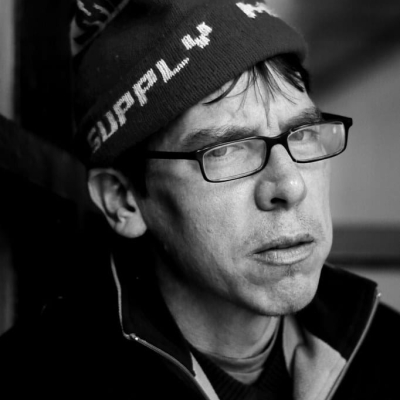The New Republic Has Long Covid All Wrong
The New Republic Has Long Covid All Wrong
BY Miles W. Griffis, Joshua B. Pribanic, Megan E. Doherty, Natalia Hodgins, Simon Spichak, Kaelyn Lynch, Svetlana Blitshteyn to PUBLIC HERALD
January 25, 2023
Long Covid Series
On January 9th, over 200 journalists, researchers, physicians, and people living with Long Covid, Myalgic Encephalomyelitis (ME/CFS), and other infection-associated illnesses sent the following letter to the progressive publication, The New Republic, demanding extensive corrections and an apology for the misinformation spread by columnist Natalie Shure.
Dear Emily, Michael, Lorraine, and Win,
We are a group of over 200 journalists, researchers, physicians, physical therapists, mental health providers, and people living with Long Covid, Myalgic Encephalomyelitis (ME/CFS), and other infection-associated illnesses. We are writing to point out inaccuracies in Natalie Shure’s December 8, 2022 column, “We Might Have Long Covid All Wrong.”
We believe the article would benefit from significant corrections and an extensive editor’s note explaining that Shure’s theory is not supported by science and goes against the vast biomedical research consensus, as well as a written apology.
Since the article’s publication, experts, researchers, physicians, psychiatrists, bioethics experts, columnists, journalists, and patients have identified harmful mistakes that undermine the article’s credibility. This kind of editorial negligence was unexpected given The New Republic’s usual record as a well-researched, accurate, and fair publication, exemplified by Shure’s previous writing on insulin, and past writings on Long Covid by Melody Schreiber, among others.
First of all, Shure’s conclusions about Long Covid are anchored to the PACE trial, a controversial treatment study that characterized ME/CFS as psychosomatic, which has been subsequently discredited by numerous experts. While Shure includes interviews with three researchers associated with the trial, she doesn’t acknowledge any of its many well-documented critics. Related to this, Shure did not cite relevant experts publishing biomedical research on Long Covid, nor include the perspective of physicians not associated with the PACE trial or those who regularly diagnose and manage Long Covid patients.
Additionally, Shure suggests that infection-associated illnesses, including Long Covid and ME/CFS, might be Functional Neurological Disorder (FND)– this is an unfounded claim. Shure failed to point to valid peer-reviewed studies to support this claim. We have outlined six pertinent inaccuracies below.
1. There is scant scientific evidence suggesting Long Covid is a Functional Neurological Disorder. The article would have benefited from consulting the many experts in the pathophysiology of Long Covid, and not solely proponents of FND, in order to present a more balanced discussion.
The scientific consensus is that Long Covid is an infection-associated syndrome with multiple biological causes. Long Covid can also be accompanied by concurrent biomedical diagnoses, including the following: Myalgic Encephalomyelitis (ME/CFS), Dysautonomia, Mast cell activation syndrome (MCAS), Ehlers–Danlos syndrome (EDS), myocarditis, and more — all of which are already recognized syndromes and conditions having no legitimate evidence linking them to FND.
Long Covid is a biomedical syndrome affecting multiple organ systems, with evidence of autonomic, vascular, and endothelial dysfunction, viral persistence, capillary rarefaction, impaired cardiopulmonary function, pro-inflammatory and hypercoagulable state, reduced oxygen extraction and abnormalities in T-cells and cytokines. Much of this was known as early as 2020. In 2022, over 3,500 deaths were attributed to Long Covid, which experts say is “a floor of an estimate.” Over 10,000 papers have been published about the disease in high impact science journals including, Nature, Science, The New England Journal of Medicine, and Cell — journals that cannot be so easily dismissed as “pay-for-play.”
Shure positioned her argument around the idea that some of the symptoms observed in Long Covid might be FND, writing, “Meanwhile, there is evidence hinting that some symptoms chalked up to long Covid may well be functional.” Beyond the single debunked PACE trial, Shure’s conclusion is based solely on anecdotal observations, as journalist and UC Berkeley public health researcher David Tuller points out. To illustrate, Shure quotes neuropsychiatry researcher Alan Carson, who cites “one long Covid patient who was unable to walk had functional paralysis that was likely triggered by his traumatic hospitalization early in the pandemic.” This single anecdote offered by one neuropsychiatrist is not representative of the at least 16 million people living with Long Covid in the United States. Shure suggests, “A chronic illness that appeared to be triggered by viral infection could just as easily have been triggered by the trauma of the pandemic itself,” but provides no legitimate studies or sources that would lend credibility to this staggering assertion. With this anecdote, Shure implies that many or all patients with Long Covid are primarily traumatized by the psychosocial environmental result of the pandemic, a reaching conclusion based on one second-hand opinion from a physician who agrees with the discredited PACE trial.* The conclusion is especially harmful, given that some people with Long Covid have been denied medical care based on the assumption that their illnesses are psychological in origin — an issue which appears to disproportionately impact women; Black, Latinx, Indigenous, and people of color; LGBTQ+ patients; and other already marginalized groups.
A fundamental flaw, Shure also inaccurately defines FND. According to the Diagnostic and Statistical Manual of Mental Disorders (DSM-V), the definition of FND refers to medical and neurologic symptoms that fail to match any existing medical or neurological conditions. It is uncommon, affecting around 4 -12 per 100,000 people, a fact Shure leaves out of her column. FND is diagnosed when patients are observed experiencing seizure-like spells in the setting of normal EEG or when they demonstrate abnormal movements or paralysis that are incongruent with their neurologic exam and neuroimaging. FND is a condition that requires the presence of discrete neurologic deficits, not the systemic chronic symptoms that define ME/CFS or Long Covid.
Shure employs examples of two patients with Functional Neurological Disorder and their recovery to suggest that the same disease pathology and therapies could resolve Long Covid, a presumption that has little scientific merit. Additionally, neither anxiety nor depression are symptoms of FND, a correlation Shure inappropriately makes.
Furthermore, Shure never examines the biopsychosocial model that underlies her favored psychological theory. As it happens, the biopsychosocial model is an incoherent model: “After fifty years of incoherent wrangling about mind and body, that is to say, the [biopsychosocial model] has come to be defined by its entrenched philosophical inconsistency.”
*Correction 01/29/2023: a sentence that stated Alan Carson was “a physician associated with the discredited PACE trial” was corrected to “a physician who agrees with the discredited PACE trial.” Alan Carson has no association with the development of the PACE trial, but does agree its findings about treatment are important for patients.
2. Shure suggests that many Long Covid patients never had Covid as indicated by negative antibody testing — despite the unreliability of antibody testing.
Shure writes that “A detailed early cohort study conducted by patients themselves found that, while the availability of PCR testing lagged early in the pandemic, the majority of participants eventually underwent antibody testing—but over two-thirds of those participants tested negative, suggesting that even after accounting for false negatives, and for the possibility of antibodies never materializing or fading over time, at least some portion of them never had Covid-19 to begin with.” However, studies show that 65% of people with low antibody levels serorevert 60 days after onset and 36% of Covid patients never seroconvert at all, making antibody tests an unreliable marker to determine whether or not patients ever had COVID-19. Additionally, 80% of people who lose antibodies are female, antibody tests appear most accurate for middle-aged men, and the early antibody tests done in the first wave were significantly less accurate, including early finger prick tests. The paper’s cohort conducted antibody testing done at a median of over three months after onset; the findings are in line with science and the attempt to discredit a cohort of mostly female patients is anti-scientific.
The study in question referred to a group of people who got sick in the first wave, when testing was not widely available; the paper explicitly explains that those who tested negative weren’t able to get tested until a median of 43 days after symptom onset–by then it would be very unlikely to test positive. Given this, there’s no way Shure could have adequately accounted for the false negatives or fading antibodies, which throws a significant portion of antibody testing data into question.
3. Shure implies Long Covid is a condition unrecognized by the medical community.
Shure asserts,“These debates have been supercharged by the rise of long Covid, a patient-coined term invoking post-viral chronic illness that lingers after sufferers have ostensibly recovered from SARS-CoV-2.”
While “Long Covid” is a patient-coined and preferred term, it has an official medical counterpart—Post-Acute Sequelae of Covid-19 (PASC), named by the National Institutes of Health (NIH)— a term never mentioned in The New Republic column. Its ICD-10 code is U09.9 and was approved for implementation on October 1, 2021. CDC officials have said that they plan to institute a corresponding code for PASC-related deaths. By neglecting to mention this, Shure adds to the idea espoused in her column that the disease was essentially made up by patients with little scientific expertise, rather than the reality that it is a valid and widely recognized medical diagnosis recognized by the World Health Organization in August, 2020, albeit by another name and defined by CDC using both the layman and scientific terms.
Shure also entirely misunderstands Long Covid by stating that the condition happens after patients “ostensibly recover” from SARS-CoV-2. This is untrue. Many never recover from their initial infection, which is why “Long Covid” is used.
4. Shure suggests that Long Covid could be caused by mental health issues, a baseless claim.
Shure cites a JAMA Psychiatry paper that associates baseline stress/anxiety/depression with the likelihood that someone will develop Long Covid, and uses this as evidence that Long Covid is caused by mental health issues, stating “One recent study found all of these things to be highly correlated with long Covid.”
While the study’s authors claim that a higher baseline status of mental health issues predicts Long Covid irrespective of pre-existing health issues, they do not control for a number of confounding variables and other health issues that could increase the chances of developing Long Covid. The study was also conducted on a group of healthcare professionals — perhaps people working closely to care for patients with Covid had legitimate anxiety over catching a virus that has killed more than six-and-a-half million people around the world. The only health issues controlled for by the researchers were weight, smoking status, diabetes, hypertension, high cholesterol, asthma, and cancer. They did not control for the following: Autoimmune disease, sickle cell, lung disease, kidney disease, cystic fibrosis, vascular disease, COPD, cirrhosis, heart conditions, HIV, pregnancy, or taking medications that suppress the immune system, all factors which make people’s bodies more vulnerable to infection-associated sequelae. Shure links mental health conditions while omitting ample evidence about the other causes of Long Covid.
5. There is no evidence to support the claim that people with Long Covid stigmatize those with mental health conditions.
Shure uses the false equivalence fallacy, writing that for Long Covid patients, “The idea that their mental health could have anything to do with their symptoms is as offensive as dismissing HIV as anxiety.”
On this point, journalist and author Meghan O’Rourke refutes Shure’s argument, explaining, “When patients critique the reflexive psychologization of unexplained symptoms, they’re not saying that psychiatric illness is not valid. Rather, they (we) are critiquing the fact that people who live in bodies at the edge of medical knowledge are almost always told our problems are psychiatric, when further research and inquiry might lead to biomedical explanations.” The real problem patients have is that they face delays in treatment when their symptoms are dismissed as psychological–not that psychological conditions aren’t valid or important. The issue is that having their symptoms misdiagnosed, or denied and dismissed, causes real, tangible harm to patients. It delays access to appropriate testing and treatment interventions and stalls needed biomedical research.
Similarly, David Tuller writes, “Many ME/CFS and long Covid patients understandably object to sweeping and unproven claims that their symptoms should be attributed to anxiety, depression and other mood and emotional disorders. This is not a dismissal of the suffering of people with mental illness and it should not be portrayed as such.”
In fact, many people with Long Covid and ME/CFS are part of an intersectional disability justice movement that works to protect all people from ableism, racism, homophobia, transphobia, xenophobia, and other forms of hate and discrimination, while actively advancing research into their diseases, illnesses, and conditions so the disability community has better access to healthcare and treatments.
6. Graded Exercise Therapy (GET) and Cognitive Behavioral Therapy (CBT) are not clinically validated treatments for ME/CFS.
It is incorrect to say that “GET and CBT are the only clinically validated treatments for ME/CFS.” The PACE trial attempted to prove GET and CBT were effective at treating ME/CFS, but failed after researchers invalidated their findings. Contrary to what Shure states in her article, GET and CBT did not improve the health of ME/CFS patients in the trial, which claimed that 22% of participants recovered following GET and CBT, respectively. These figures were based on a definition of recovery that the designers of the study changed in the middle of the study. When recovery was defined according to the original trial protocol, recovery rates in the GET and CBT groups were no higher than the control group (4%, 7% and 3% respectively) (source). To omit this, The New Republic committed editorial negligence and spread misinformation.
After the PACE trial was discredited in 2016, the U.S. Centers for Disease Control removed references to GET and CBT as appropriate treatments for ME/CFS (source). In 2021, after a thorough review, the U.K. National Institute for Health and Care Excellence followed suit, revising their clinical guidelines to state, “Do not offer people with ME/CFS any programme that uses fixed incremental increases in physical activity or exercise, for example, graded exercise therapy” (source). Shure writes, “Advocates have successfully gotten GET and CBT withdrawn from official ME/CFS treatment guidelines in the United States and the U.K.,” a framing that suggests that federal health agencies changed their advice because patients complained about a trial. The truth is, they revised their recommendations to align with the growing body of scientific research that shows exercise could be dangerous for people with ME/CFS (source). In July 2021, World Physiotherapy and Long Covid Physio published a paper titled “Safe rehabilitation approaches for people living with Long COVID: physical activity and exercise” (source). The authors emphasize using caution with physical activity and exercise, including advising against GET, given the risk for post-exertional symptom exacerbation (PESE). Instead, rehabilitation should be symptom titrated focused on symptom management, and should not negatively impact quality of life.
The PACE trial findings were simply not “mundane” as Shure writes; they harmed hundreds of thousands of people around the world. The size of the trial meant, at that time, it had a substantial impact on the evidence-basis of ME/CFS. It influenced clinical guidelines, meaning many patients were forced to complete GET and CBT and were harmed as a result of being pushed to exercise while experiencing post-exertional malaise, or PEM (source). Post-exertional malaise (PEM) is a well-documented symptom and the hallmark of ME/CFS and Long Covid. It occurs after physical or cognitive exertion and exacerbates a patient’s baseline symptoms.
When Shure suggests Long Covid is not biomedical, she goes up against Pulitzer Prize winning science writer Ed Yong in the process. She writes, “The Atlantic’s Ed Yong—the most respected reporter in the world on long Covid… warned that anyone with post-exertional malaise who pushes themselves to exercise could get ‘permanently worse’—a claim that isn’t evidence-based, and that would make the condition suspiciously unique in the annals of medical knowledge.”
It is not a ‘claim.’ Significant evidence-based research exists to support it (source). The 2-day CPET protocol is an objective indicator of physical exertion decreasing function in both ME/CFS and Long Covid patients (source), which Shure does not mention in her article. Scientists have used repeat cardiopulmonary exercise tests (CPETs) to measure changes in patient capacity following exertion and to demonstrate how patients exhibit cardiac preload failure and impaired systemic oxygen extraction in response to exertion (source, source). People with ME/CFS and Long Covid are not imagining symptom exacerbation following exertion. Rather, PEM is an indicator of post-infectious disease and the scientific literature proves this. To suggest patients are simply “claiming” their condition deteriorated after exercise is factually incorrect and denies their lived experiences.
In conclusion, Shure makes gross misstatements about the nature and underlying mechanisms of Long Covid and ME/CFS, where even a cursory glance at the literature would disprove her assertions. She also entirely omits original interviews with patients, researchers, patient researchers, and advocates despite citing and often misrepresenting their work. A correction has already been issued for Tuller’s misrepresented work. Shure denigrates patient advocacy by portraying it as inherently anti-science, and she commits epistemic injustice against disabled patients by misrepresenting their motivations and casting them as untrustworthy, rather than as credible witnesses.
We therefore believe it is important to correct the record. Readers deserve an extensive editor’s note explaining that Shure’s theory is not supported by science and goes against the vast biomedical research consensus, similar to last year’s editor’s note on the comedy industry. We also demand a written apology from Shure and The New Republic for the harmful misinformation that this column has spread.
Sincerely,
Miles W. Griffis, independent journalist living with Long Covid
Joshua B. Pribanic, Editor-in-Chief, Public Herald, living with Long Covid
Megan E. Doherty, PhD, Strategic Advisor & Project Manager, Disability Lead
Natalia Hodgins, writer and journalist living with ME/CFS
Simon Spichak, MSc, science journalist and writer
Kaelyn Lynch, journalist, filmmaker, and fact-checker living with Long Covid
Svetlana Blitshteyn, MD, Director of Dysautonomia Clinic, Clinical Associate Professor of Neurology, University at Buffalo Jacobs School of Medicine and Biomedical Sciences
Ziyad Al-Aly, MD, Chief of Research and Development, VA St. Louis Health Care System and Senior Clinical Epidemiologist at Washington University in St. Louis.
David Putrino, Associate Professor, Icahn School of Medicine at Mount Sinai. Director, Center for Recovery from Complex Chronic Illness (CoRE), Mount Sinai Health System
Wesley Ely, MD, MPH, Professor of Medicine and Critical Care, C0-Director of the Critical Illness, Brain Dysfunction, and Survivorship (CIBS) Center, Vanderbilt University Medical Center, Nashville, TN, USA
Alba Miranda Azola, MD, Assistant Professor, Co-director of the Post-Acute COVID-19 Team (JH PACT) Program, Department of Physical Medicine and Rehabilitation, Johns Hopkins University School of Medicine
Asad Khan, Pulmonologist, Manchester University Hospitals, U.K., Long Covid Patient
Aaron Teasdale, journalist, photographer, editor, for National Geographic and others
Brendon Nacewicz, MD PhD, Psychiatrist and Neuroscientist studying trauma, brain development, and social cognition.
Tom Molmans, MD, psychiatrist and long Covid patient
Ilene Ruhoy, MD, PhD, Neurologist and Medical Director, Cascadia Complex Health, PLLC, Seattle, WA
Femke van Rhijn, MD, internal medicine/rheumatology resident, research physician in vascular inflammation, Long Covid patient
Chaand Ohri, MD, Internal Medicine Physician
Myrto A. Ashe, MD, MPH, physician
Leigh Saint-Louis, MD, family medicine physician
John Haughton, MD, MS
Meghan McCoy, MD, former doctor and ME/CFS patient
Jennifer Hulme, MD, MPH assistant, Professor University of Toronto, Long Covid patient
Danilo Buonsenso, Pediatrician
Esther Rodríguez Rguez, MD, child psychiatrist, Long Covid patient and Advocacy Reicop Association Group
Jonathan Fluxman, retired GP
Ian Fetterolf, Psy.D., MSW, University of Pennsylvania School of Social Policy & Practice, Health Psychologist, Psychotherapist, and Patient Advocate
Camille Buckner, PhD, Professor of Psychology and Long COVID patient
Charlotte Haley, PhD, psychologist and Long Covid patient
Joseph S Weiner, Associate Clinical Professor of Psychiatry, Medicine, and Science Education, Zucker School of Medicine at Hofstra/Northwell
Penelope McMillan, Retired psychologist, ME for 25 yrs, active in patient advocacy & research
Anna Kern, MSN, APRN, FNP-C, board certified family nurse practitioner, Long COVID/ME patient, advocate & researcher
Todd E. Davenport, PT, DPT, MPH, OCS, Professor & Vice Chair, Department of Physical Therapy, University of the Pacific, Stockton, California. Scientific Advisor, Workwell Foundation, Ripon, California
Daria Oller, PT, DPT, ATC physical therapist, Pro-Activity; co-director of education, Long COVID Physio
Darren Brown, FCSP BSc MSc MRes, Clinical Academic Physiotherapist Chelsea and Westminster Hospital NHS Foundation Trust UK, Chair Long COVID Physio
Nicola Clague-Baker, PhD. Physiotherapy Lecturer and ME/CFS and Long Covid researcher and advocate, cofounder of Physios for ME
Kelly M. Meiners, PT, Physical Therapist and Long Covid patient
Alexis Misko, OTD, OTR/L, occupational therapist and Long Covid patient
Linda Hollenweger, ADN, LPN, CCRC, Clinical Research Manager, NYP Hudson Valley, Columbia University Medical Center, NY and Long COVID survivor
Michael Alexander, MSc Psychology and Long Covid Patient
McNulty, MBChB, MCEM, FRCA, Long Covid Patient
Janneke Varkevisser, child psychologist, since 7 years unable to work due to ME, MCAS, hypermobility
Jonathan West, BSc(hons) MPH MSc MFPH, living with Long Covid
David Davies-Payne, FRANZCR, Radiologist and Long COVID patient
Susan Meehan, PhD, LMFT
Aaron Phillips, PA-S3, Yale School of Medicine
Kimberly Druist, MSN, CNM, RN Long Covid patient, nurse-midwife
Mary Rankin, RN, person with Long Covid
Maya Lindemann, RN and Long Covid patient
Jasmine H., RN, BSN, Dysautonomia patient, previous ME/CFS patient
Cass Macdonald, Nurse and Long Covid patient
Emma Wooller, Clinical Coder and Covid Longhauler
Rachel Stewart, LCSW, State of Illinois, and Long Covid Patient
Danielle Green, Mental Health practitioner and Long Covid patient
Dani Faucher, RMT, learning from & treating Long COVID patients
Toby Sawyer, WHNP, disabled due to ME/CFS
Diane O’Leary, philosophy of medicine, Professor of Philosophy, UMGC
Jaime Seltzer, Director of Scientific and Medical Outreach, #MEAction
Janna Moen, PhD, postdoctoral research fellow in neuroscience, long COVID patient and advocate
Danielle M. Wenner, Associate Professor of Philosophy & Associate Director, Center for Ethics & Policy, Carnegie Mellon University
Elizabeth A. Weaver II, M.S.
Gabriella Coleman, Professor of Anthropology, Harvard University
Chris J. Maddison, Assistant Professor, University of Toronto, CIFAR AI Chair, Vector Institute, Long Covid Patient
Abigail Koppes, PhD, Associate Professor of Chemical Engineering, Northeastern University, PACS patient
Sarah C. Longstaff, MA, Linguistic and Biomedical Anthropology researcher and editor, parent/caretaker of young adult with ME/CFS
Peter Trewhitt, MA, MSc, Dip, ClComSt, retired Speech & Language Therapist, ME for 30 years
Alma McQuade, MSc, MA, HCPC, Registered Art Therapist and Long Covid Dual Experience Practitioner
Sarah Manners, MSc, ME advocate
Alex Berezowsky, PhD, University of Chicago, family of Long Covid patient
Gwynn Dujardin, PhD, medically retired professor and person with ME
Tessa Green, Biophysics PhD Candidate, Harvard Medical School, Long COVID patient
Kate Laing, Chair of the Board of Ontario School Safety, a COVID safety advocacy group
Patricia F. Anderson, MLIS, Librarian, University of Michigan, Long Covid patient
Anne-Marie Zapf-Belanger, Lawyer and Long COVID Patient
Olivia Franklin, History, Philosophy, Sociology of Science, Michigan State University
Frances Haddock, BVSc, MRCVS, ME and Long Covid sufferer
Casey Doherty, Long Covid Patient and Disability Studies graduate student
Shannon Putnam, BS in psychology, former dancer choreographer, ME, POTS, Long COVID patient
JD Davids, ME/CFS and Long COVID patient, co-founder, Network for Long COVID Justice
Trish Davis, staff volunteer on Science for ME forum, retired math teacher, ME for 33 years, carer for daughter with ME for 25 years
Claire Higham, Long Covid Advocacy
Katie Johnstone, ME/CFS patient, ME/CFS Medical Education Campaign
Cindy Lu, PhD, former Cell editor, Long Covid patient
Ondine Sherwood, Co-founder Long Covid SOS
Adriane Tillman, Editor, #MEAction, person with ME
Lygia Navarro, independent journalist, Journalism and Women Symposium health journalism fellow, person with (and disabled by) Long COVID
Fiona Lowenstein, independent journalist and founder of Body Politic
Julie Rehmeyer, independent journalist and author
Betsy Ladyzhets, independent journalist
Julia Métraux, freelance journalist
Austin Fisher, journalist
Maren Larsen, journalist and fact-checker
Carolyn Bick, journalist
Allison Guy, journalist and Long COVID patient, MIT Graduate Program in Science Writing
Sarah Gilman, science writer, illustrator, editor, and family member of a person with ME/CFS
Krista Langlois, independent science journalist
Freya Sawbridge, journalist and Long Covid advocate
Jordan Young, student journalist at American University and Long Covid patient
Alisa Lynn Valdes, NY Times bestselling author, Pulitzer-nominated former staff writer for LA Times & Boston Globe
Robert Flummerfelt, Investigative Journalist, Documentary Filmmaker, Long COVID patient
Polina Sparks, journalist, Long Covid Support employment advocate
Emma James, journalist and Long Covid sufferer
Terri L Wilder, MSW, journalist, author, and activist
Justine Barron, investigative journalist and Long Covid patient
Julia Doubleday, Writer
Larissa Fan, Writer and ME patient
Madelleine Müller, writer and ME patient
Beck Levy, writer, artist, Long Covid patient, and former professional disability advocate
Laura Newman, retired medical writer and blogger at PatientPOV.org
Aidan Zingler, Writer, Long Covid patient
Cheryl Harris, MPH, RH, writer and ME patient
Karla Monterroso, Long Covid Survival guide contributor, racial equity advocate, Long Covid patient
Erin Carrillo, science librarian, Long Covid advocate
Alette Jansen, BA, House- and bedbound with ME
Harry Leeming, Founder of Visible
Shaney Wright, Safety & Risk Practitioner and Long Covid patient
Ashwini Sreekanta, Systematic Reviewer
Kate Harmon Siberine, Long Covid patient and priest in the Episcopal Church
Penny Green, M.E. Patient, former subscriber
Alex Bunten-Walberg, PhD student, ME/CFS patient
Jasper Nuyens, CEO, Linux Belgium
Peter Neehus, creative director and ME patient
Anil van der Zee, former professional ballet dancer and ME patient
Eleanor Davin, person with ME
Charlie McCone, Long Covid patient & advocate
Eliana Uku, Long Covid patient and advocate
Sarah Borger
Kevin Chirnside
Scott Libbert, Long Covid victim of incompetent Neurologists diagnosing FND
Sophie Gorman
Hanna Kaufman, Long COVID patient
Heidi Connahs, Long Covid/ME patient
Billy Hanlon, ME Patient
Heather Hall, ME Patient
Catherine Romatowski, ME patient
Laura Miers, Long Covid patient
Annabel Schleutker, ME patient for 24 years
George Cortez, Long Covid patient
Patricia Alessandrini, Long Covid patient
Angelique Isdell, Long Covid patient
Christina Cotter, SLT and Long Covid patient
Cynthia Hill, Long Covid patient
Michael Sieverts, Long COVID patient
Anisha Sekar, ME/CFS and Long COVID patient
Florian Kaiser
Natasha Rosling Long Covid patient/CFS sufferer
Kathy Flaherty, Long COVID patient
Heather M. Booth
Jennifer Smith, Long COVID patient
Laurin Milsom
Ty Godwin, Long Covid Patient
Barry H. Rayfield
Randall Cully, Long COVID Patient
Rebecca Letts, Long Covid Patient & Pediatric Long Covid Caregiver
Erica Hayes, Long Covid Patient
Kate Hendry, Long Covid Patient
Marcel Gremaud
Kate Violette, ME patient for over a decade
Tamara King
Giles Bowkett
Angela Henderson
Anatol Bachmayer, ME patient
Lupe Aldrete, Long Covid/ ME patient
Richard Vallée, ME advocate and patient
Kristine Chapman, Long Covid patient
Gillian Lizars, Long Covid Patient
Kara Brady, Long Covid patient
Bryan Buckner, Long Covid Patient
Travis Hardy, Long Covid patient
Tom Groff, Long Covid Patient
Anne D., ME patient
Jeff Reynolds, Long Covid Patient
Angela Laffin, Long COVID Patient
Sandra D., disabled ME/CFS patient
Sally Watson, Covid Activist
Gretchen Drown, Long COVID patient
Kelsey Smolen, ME patient
Tracey Burgess
Katharina Staake
Penelope Del Fante, caregiver of young adult with severe LongCOVID, ME for 30 years
Adeline Wu
Gary Robinson, Long COVID patient
Sam Wise, Disabled Young Adult with POTS and a plethora of other disabilities, lover of immunocompromised partner, child of immunocompromised family
Lauren Smith, Long Covid patient
Anna de Sterke, Long Covid patient
Jocelyn W., Bedbound ME patient
Amy Siniscalchi, Long Covid patient and advocate
Stephen B. Martin
Tom Harris, person with ME/CFS
Emily Heather Price, patient
Nikki Burkhart
Melissa Mansfield, Long Covid patient
Dan baird, Long Covid patient
Katie Sullivan, student and Long Covid patient
Emily Fraser, ME patient
Wendy Kloiber, Long Covid patient
Allison Stafford, Long Covid patient
Carly Welton, ME and Long Covid patient
Nick Benton, ME patient
Henry Silver, ME/CFS and Long COVID patient
Rachel Bishop, Long Covid patient
Alison Thomson, ME patient
Nicole Padilla, MS, Long Covid patient
Claire Hastie, Long Covid patient advocate
Megan Fliegelman, Long Covid Patient Advocate
Roos Bouyeh
CJ Janzen, ME Patient (10 years), Former Paramedic
Kelly Raihani, Long Covid patient
Işıl Toksöz, SFN, Long Covid, vaccine injury, POTS, Fluoroquinolone toxicity, ME patient
Meritxell Viciano, Bedbound with ME, POTS, hyperlaxity and other disabling diseases
Kevin Toksöz Fairbairn, caretaker
Rose Friedman, Long Covid, EDS, POTS, and MCAS Patient
Alexandra Smith – Long Covid patient
Benjamin Ho, ME patient (4 years)
Jessica Cece, Long Covid patient
Nadia Fox, ME patient
Robert Van Ysendyck, Long Covid patient
Randy Calderone, Long Covid patient
Nick Benton, ME patient
Simon Del Favero, ME patient
Valerie Krumins, ME patient triggered by EBV
Clare Copley, ME and Long Covid patient
Thomas O’Keefe
Lesley Cooper
*Correction 01/29/2023: a sentence that stated Alan Carson was “a physician associated with the discredited PACE trial” was corrected to “a physician who agrees with the discredited PACE trial.” Alan Carson has no association with the development of the PACE trial, but does agree its findings about treatment are important for patients.
CONTRIBUTORS















